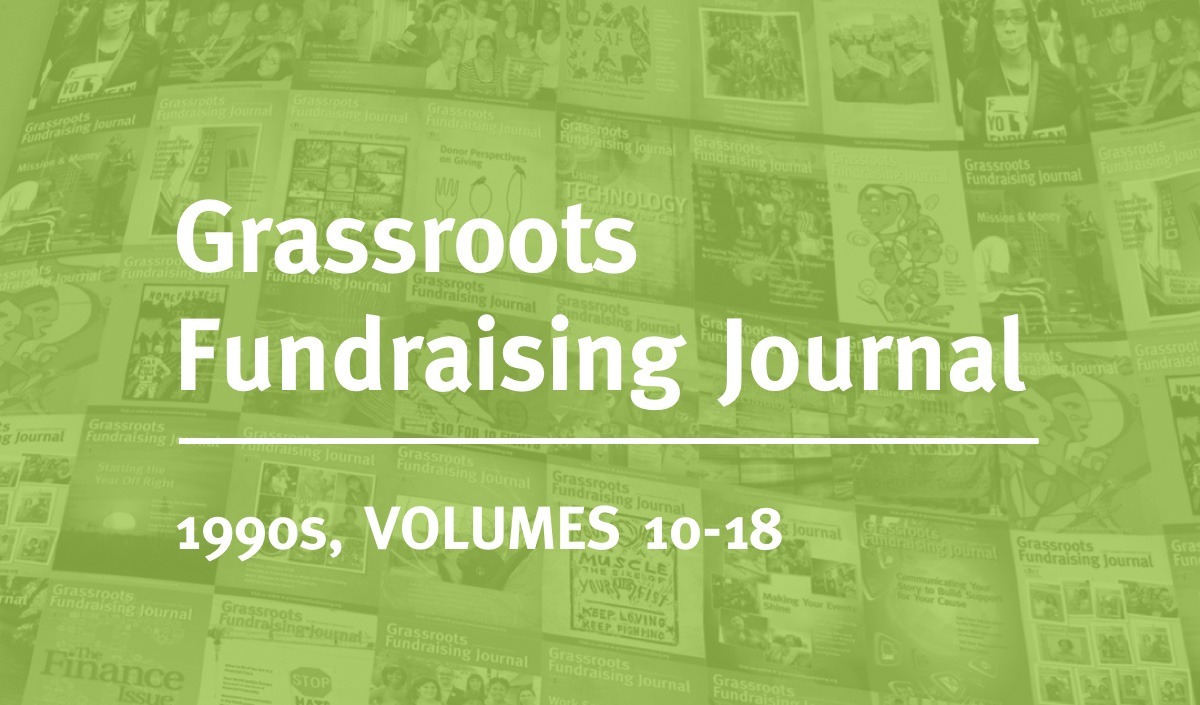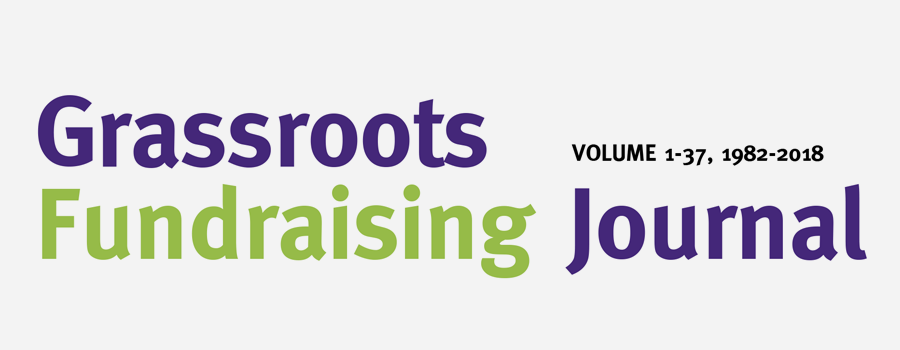
Editors’ note: This article, first published in print during October-1999, has been republished for Nonprofit Quarterly with minor updates.
For the past three months, those of us living in the San Francisco Bay Area have been engaged in a struggle to save our commercial-free radio station, KPFA. The story, an unusual one for our times, has been in almost all major newspapers. KPFA is one of five publicly supported stations around the country that belong to a network called Pacifica Radio. Pacifica is acknowledged as the nation’s leading broadcast forum for alternative news and dissent.
While there have been tensions between the national Pacifica board and the local KPFA station for some time, according to news reports, things came to a head when a popular and fairly new KPFA station manager, Nicole Sawaya, was fired by an also fairly new executive director of Pacifica, Lynn Chadwick. Sawaya was fired for questioning the percent of money raised by KPFA that was given to Pacifica towards their total budget, why the board was being reconfigured, and other matters that Chadwick deemed insubordinate to question. Chadwick then told the KPFA staff that they were not to report on any of the tensions between KPFA and Pacifica on the air.
Since KPFA’s motto for the 50 years of its existence has been “Free Speech Radio,” this order guaranteed that KPFA reporters would discuss the firing of Sawaya and the tensions that had led up to it. Chadwick then tried to fire each person who broke her rule, starting with award winning reporter Larry Bensky, then firing 20-year veteran volunteer Robbie Osman.
The support from listeners for the fired staff was immediate and vocal, as fans began demonstrating outside the Pacifica offices. Because KPFA and Pacifica share the same downtown Berkeley location, Chadwick hired security guards because she and Pacifica staff felt threatened by KPFA fans. Those security guards were ordered to drag Dennis Bernstein, another popular commentator, off the air at the end of his show because he replayed a press conference about the KPFA/Pacifica problems, an act that Chadwick again deemed in violation of her policy.
At this point, in mid-July, Chadwick shut the station down, had the doors boarded up with plywood, and put the staff and volunteers on administrative leave. Every night for two weeks after that, hundreds of people gathered outside the Pacifica offices to protest and dozens slept out in front of the station in what became named, “Camp KPFA.”
Sign up for our free newsletters
Subscribe to NPQ's newsletters to have our top stories delivered directly to your inbox.
By signing up, you agree to our privacy policy and terms of use, and to receive messages from NPQ and our partners.
What does this have to do with fundraising? Everything. What Chadwick, Pacifica board chair Mary Frances Berry, and others failed to take into account is how many people in the Bay Area give money to KPFA and think of it as their radio station. Within hours after Osman was fired, 200 people had assembled in front of the KPFA building to protest the “gag order,” chanting, “Free our radio station.”
The fired staff realized they would need money to pursue their grievances. Osman asked his friend, Joan Baez, to participate in a benefit concert for KPFA. Berkeley’s Mayor, Shirley Dean, secured a large venue, and six days later, 3200 people paying $20 each arrived at the Berkeley Community Theater to hear Baez, Dr. Loco and the Rocking Jalapenos, Michael Franti and Spearhead and Dar Williams. Pulling off a concert of that magnitude in six days should have been impossible, particularly with no KPFA radio broadcasting to announce it. The fact that it was such a huge success speaks to the grassroots support the station has developed over the years.
A week later, an estimated 15,000 people gathered at Sproul Hall on the University of California campus and marched to Martin Luther King Park for a rally in support of KPFA. Again, the rallying cries were, “This is our radio station,” and “Save KPFA—community-controlled radio. No corporate gifts. No advertising.” In newspaper and radio reports, protesters repeatedly declared, “I give money to this station. This is my radio station.” Or, “This community gives a lot of money and time to this station. We want free speech radio—no gag orders.”
It is not the purpose of this editorial to take a position for or against KPFA, although anyone reading between the lines may be able to discern my views. Rather, what is important here is that had KPFA been an organization with the majority of its money coming from foundations, it would never be able to rally such widespread support. KPFA has, over its 50-year history, deliberately and systematically built a broad base of community support. Thousands of people count themselves as donors to KPFA, and when they felt their radio station was threatened, they quickly named themselves the “owners” of the station and avidly protested its takeover by the Pacifica board.
Organizations serious about helping communities become powerful, and about being accountable to their communities, must build just such a broad base of donors. When you need them, they’ll be there.













